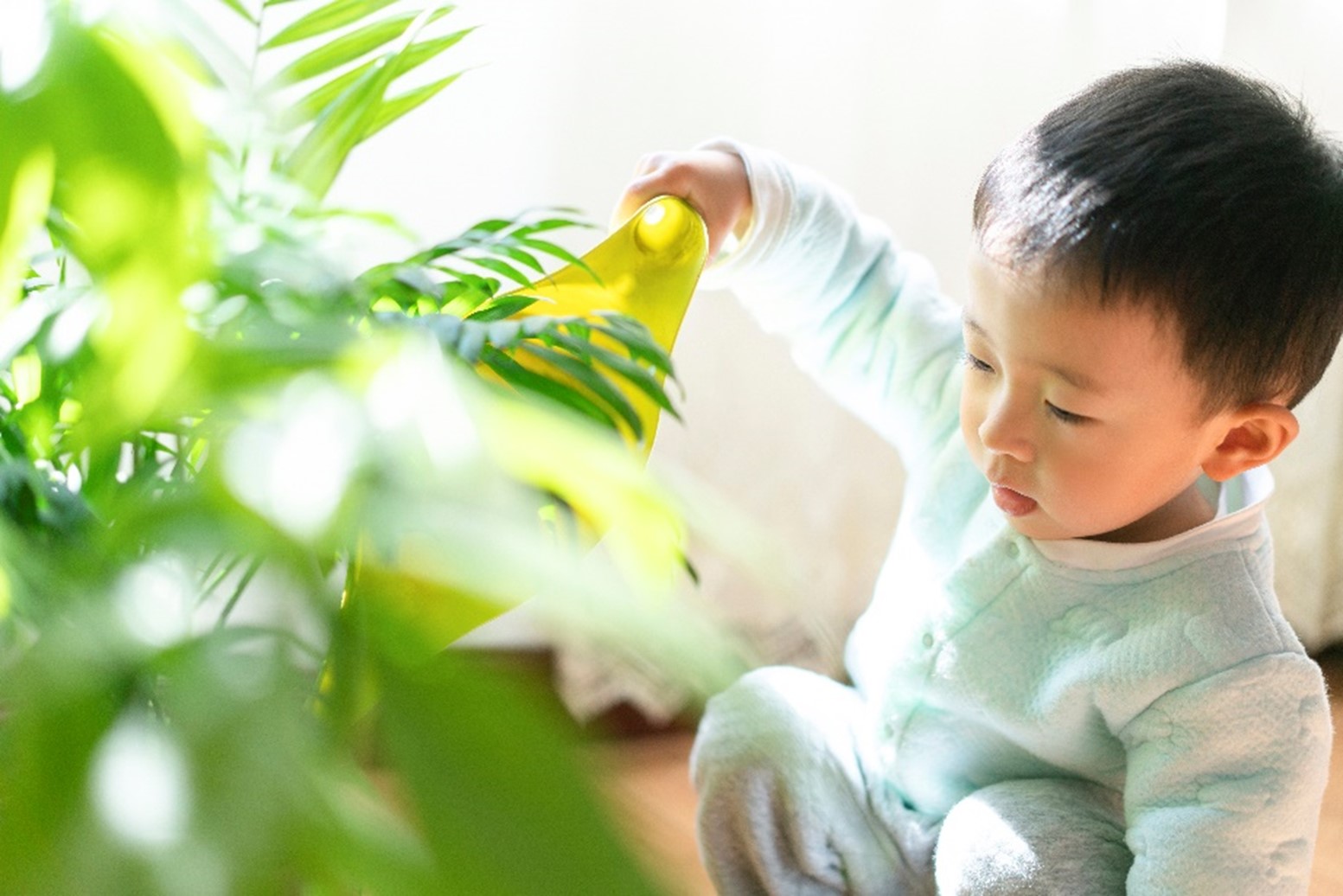Brought to you by Aptamil Toddler
The hidden world of toddlers is a wonder to parents – one day your little one has just learnt to sit, the next they’re scooting around the furniture exploring their domain, perhaps babbling non-stop as they do so.
The time between 12 months and three years is a crucial period of development for children, from developing their immune system to mastering those fine and gross motor skills, and social and cognitive milestones. Here, some of the incredible things to look out for, enjoy, and be amazed by as your little one grows.
1. Your toddler’s immune system is developing
Our immune system works by producing antibodies that fight germs that cause disease. However, a toddlers’ immunity against disease and infection is not as strong as adults. This, of course, means they are more susceptible to getting sick.
A healthy immune system doesn’t just protect children from disease, but will help them develop optimally in the first years of life and beyond, having long-term benefits on their health. And yep, this is all going on below that irresistible little belly of theirs’. Amazing, huh?!
Immune system boost
You can support a healthy immune system in your toddler in a range of ways (see #3 and #6), but the easiest approach is by providing a healthy age-appropriate diet filled with a range of wholefoods, vitamins, nutrients and minerals every day. If you’ve got a fussy eater in your playpen, don’t stress. Aptamil Toddler has a range of products to support every parents’ unique feeding journey.
The number one recommended brand by paediatricians^ is backed by 50 years of early life nutrition research and science supporting children’s immune systems, with advanced formulations for a range of needs. These include Aptamil Gold+ Toddler milk, Aptamil Sensitive Toddler milk and Aptamil Dairy and Plant Blend Toddler drink.^
2. Your toddler can use cutlery
Using cutlery can help your toddler refine their fine motor skills. Provide them with a small spoon and fork at mealtimes to practice feeding themselves, and you can feed them yourself in between their utensil practicing. But don’t worry if most of the food doesn’t make it to their mouth. Your little one will take until they’re over 24 months to start using these fine skills effectively.
This is also a time when your child’s nutritional needs are important for everything from their mood to their immunity and sleep. Make sure your toddler has a diet sufficient in iron, zinc, magnesium and calcium to ensure they get a good night’s sleep. If you have any concerns about their diet, be sure to check with your medical professional.
3. Your toddler can contribute
Toddlers love to help with chores, and once they’re solidly walking and mastered those gross leg motor skills, watering plants can be another fun way to contribute to the household and practice grasping, pouring and balance. You can fill a watering can with a little water (not too full as there are sure to be spills) and take your child around the garden.
Aside from motor skill development, simple contributory acts provide social skills and great role modelling opportunities. They also provide scenarios for your toddler to experience the act of helping others, fresh air and natural light, physical activity, experimental play, vitamin D, and nature exploration. Be sure to stay with your toddler at all times while they’re doing this task and remember, they’re still learning so some patience is definitely required.
And if they make a wet-puddle-muddy-mess? Great! According to research, dirt is teaming with friendly microorganisms that can train the immune system and build resilience to a range of illnesses, including allergies, asthma and even depression and anxiety. In fact, “successful immune functioning is shaped by microorganisms we encounter in our environments, from other humans and animals…to diet and medicine. Being exposed to a broad variety of organisms helps the immune system learn to fine-tune the balance between attack and tolerance mechanisms.”

Image: Getty
4. Your toddler may know around 1000 words
Toddlers spend a lot of time babbling, which can be both endearing and annoying if you’re running on hardly any sleep and your little one seems to be verbalising from morning till night. But this sound-making is a crucial part of their development as they practice all the sounds they’re hearing. Between 24 and 36 months, your child will be probably know around 1000 words and be using around 200 of these words in their speech.
You’ve likely already been helping them with their language development by narrating what you’re doing as you go about your day. Now you can encourage their speech by reading with them and having conversations with them; notice what they’re interested in and listen to what they say. You can ‘fill in the blanks’ by saying or repeating the words you think they’re trying to convey to you in full sentences. Remember to give them time to find their words when you’re having conversations too.

Image: Getty
5. Your toddler can chew
Even before your child has cut all their teeth, they’re practicing the intricate act of chewing, which requires a combination of lip, tongue and jaw coordination. To help your toddler learn to chew efficiently, offer them a variety of different textured food. Little ones who have been introduced to more solid textured foods at around six months will be chewing effectively by twelve months, and able to eat most family foods by the time they’re two years old. You can also add finger foods to a toddler’s plate so they also have the option to pick up their food to experience the different textures.

Image: Getty
6. Your toddler is quietly developing their gut microbiome
While there’s much research still to be done on the function of the gut, it’s thought that between 15 and 30 months, your toddler is going through a transitional phase in developing their gut microbiome. Having a healthy gut microbiome is important for your child’s immune system. You can help your toddler develop a healthy gut microbiome by providing them with adequate fibre, minimal sugar, and offering a wide variety of foods to stimulate good gut bugs to flourish. Prebiotics are found in food such as bananas, apples, pears and oats. Some toddler milks are fortified with prebiotics too.
This article was brought to you by Aptamil Toddler. Aptamil Toddler^ can support your toddler’s growth with the nutrients they need as part of a varied, balanced diet. Please consider your child’s individual circumstances when choosing a product and always consult a healthcare professional if you have any concerns.









.jpg)

